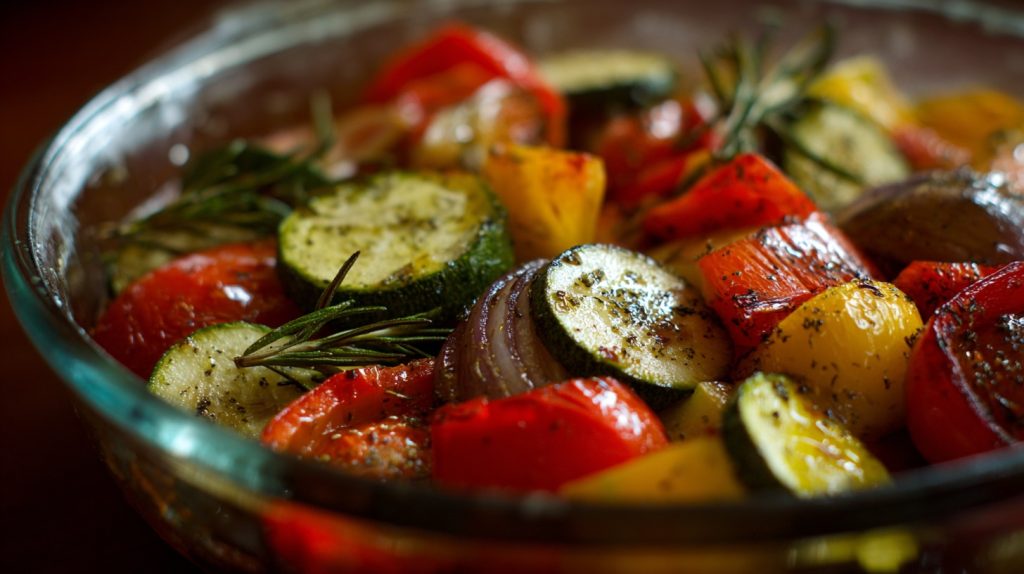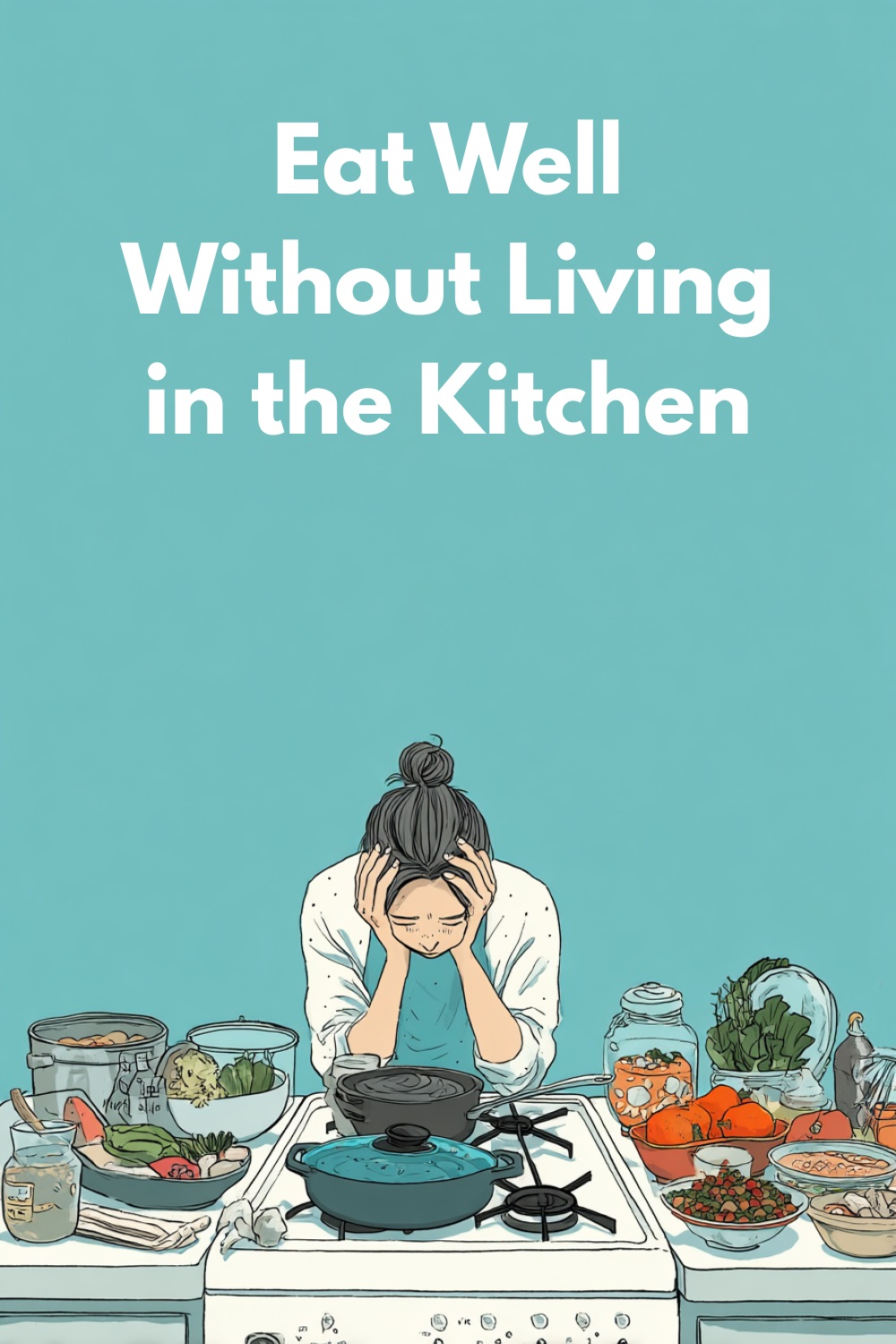You want to eat better. You know your current habits aren’t great. But the idea of spending hours cooking every day? Not going to happen.
You’re not lazy. You’re just busy. Tired. Or honestly, not that interested in cooking elaborate meals.
The good news is, you don’t have to be.
Eating well doesn’t mean turning into someone who meal preps every Sunday and cooks everything from scratch.
It just means figuring out how to eat better more often – with the least amount of friction possible.
Here’s how to do that.
1. Let Go of the “Perfect Meal” Idea
Most people assume healthy eating = complicated recipes, fresh ingredients, and Instagram-worthy presentation.
Not true.
A meal can be healthy, satisfying, and supportive even if it’s not impressive.
Leftovers, frozen veg, toast with something on it – these count.
If you’re always chasing the “ideal” healthy meal, you’ll probably eat nothing or give up and grab junk.
Aim for “better,” not “perfect.”
2. Have a Short List of Go-To Meals
Don’t reinvent the wheel every day.
Most people cycle through the same 10 or so meals anyway. Choose 4 or 5 simple ones you actually like and can throw together quickly.
Things like:
- Scrambled eggs and toast with fruit
- A wrap with whatever protein and veg you’ve got
- Stir fry with frozen veg and pre-cooked rice
- Greek yogurt, oats, and nut butter
- Tinned fish on crackers with a side of carrots
Keep it basic. Keep it repeatable.
3. Repeat Meals More Than You Think You Should
It’s okay to eat the same breakfast every day.
It’s okay to rotate through the same two lunches.
In fact, it’s one of the most effective ways to reduce decision fatigue and stay consistent.
You can always change things later. But when you’re busy or trying to build a habit, repetition helps.

4. Use Convenience Foods to Your Advantage
You don’t have to make everything yourself for it to be “healthy.”
Bagged salad mixes, frozen chopped onions, pre-cooked grains, microwaveable meals with decent ingredients – these are all tools.
So is rotisserie chicken. So is pre-washed spinach.
Use what works for you.
There’s no bonus points for doing it the hard way.
5. Prep Ingredients, Not Full Meals
If you don’t like full-on meal prep, don’t do it.
Instead, try prepping ingredients you use a lot. A tray of roasted veg. A batch of rice. Some boiled eggs. A few washed and chopped veggies in containers.
These aren’t full meals, but they give you a head start. You can mix and match without starting from scratch every time.
6. Build “Default Meals” That Don’t Require Thinking
A default meal is something you can make fast, with what you usually have at home, and without needing a recipe.
Example: toast + eggs + fruit. Or rice + frozen veg + soy sauce. Or hummus, crackers, cheese, and cucumber slices.
Keep ingredients for these meals stocked so when you’re tired or not in the mood, you’ve still got options.
7. Keep Healthy Foods Visible and Easy to Grab
This one’s about environment.
If the snacks are on the counter and the fruit is hidden in the back of the fridge, guess what you’ll reach for?
Put fruit in a bowl on the counter. Keep pre-chopped veg or cheese sticks at eye level. Stock your go-to items so you don’t run out.
Make the healthy choice the easy one.
8. Keep a Loose Plan for the Week
You don’t need a perfect meal plan.
But it helps to know what your general plan is for the next few days. What meals are you repeating? What needs to get used up? What are your default options if you’re too tired to cook?
Even a rough sketch of the week makes a big difference.
No surprises = less stress = more follow-through.
9. Make Flavor Easy
Healthy doesn’t mean boring. If your meals taste like cardboard, you won’t keep eating them.
Use simple things to level up flavor without adding cooking time:
- Pre-mixed spice blends
- Jarred sauces and salsas
- Fresh herbs (or frozen ones)
- Toasted nuts or seeds
- A drizzle of olive oil or tahini
You don’t need to be a chef. You just need meals that taste good enough to eat again.
10. When You Do Cook, Make It Count
If you’re already cooking, cook a little extra.
Double the rice. Make enough protein for two or three meals. Roast more veg than you need tonight.
This doesn’t mean eating the same thing every night – it means giving yourself a break tomorrow.
Future you will be very grateful.
You Don’t Have to Love Cooking to Eat Well
You don’t need to cook every day. You don’t need to follow a plan perfectly. You don’t need to become someone who meal preps on Sundays.
You just need a few simple systems that work in real life.
The goal isn’t perfect meals – it’s habits that support you, even on tired days.
Start there.

